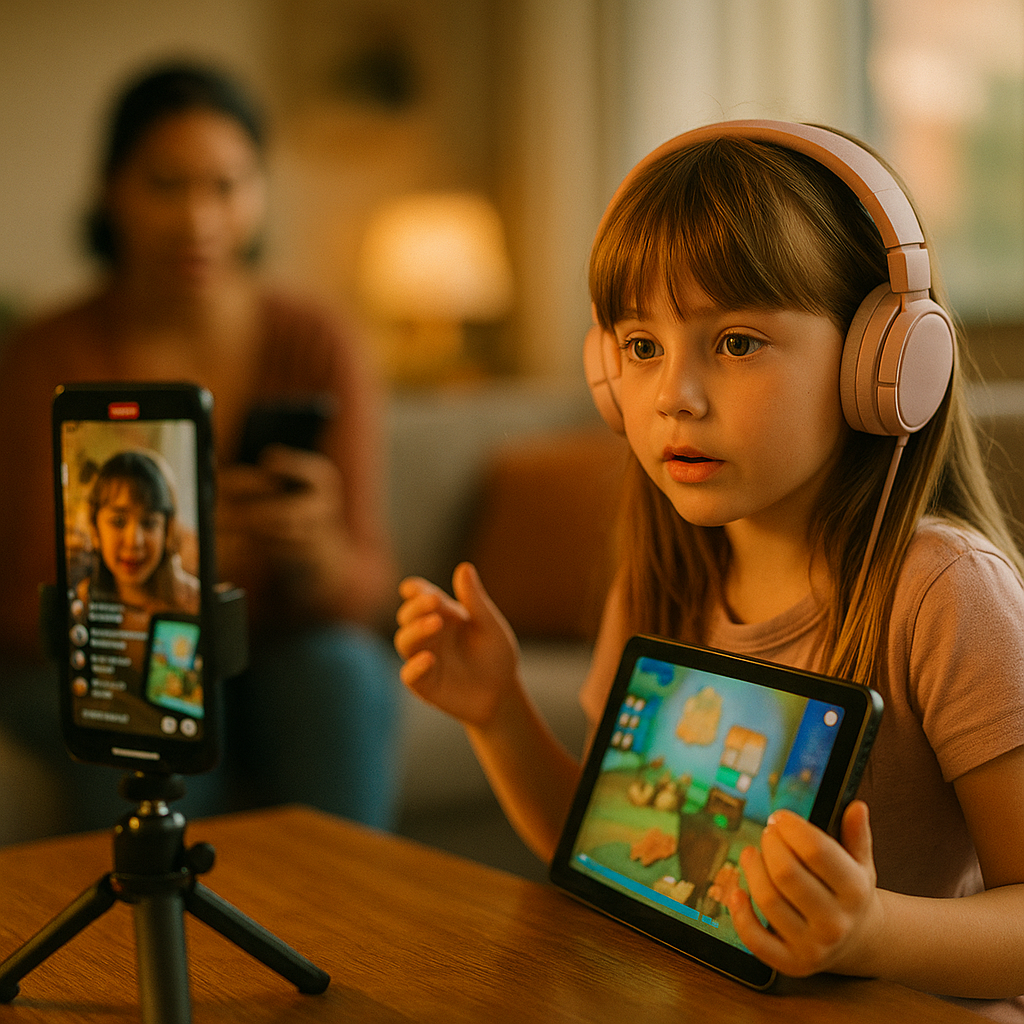Gen Alpha—digital natives born since 2010—are already influencing the evolution of influencer marketing in 2025. With their unique media habits and brand expectations, marketers must stay ahead of the curve. How will this tech-savvy generation shape the future of brand-consumer interaction in the influencer landscape? Let’s explore the emerging trends and strategic shifts on the horizon.
Understanding Gen Alpha’s Digital DNA: What Sets Them Apart?
Gen Alpha is the first generation to grow up seamlessly immersed in touchscreens, voice assistants, and AI-powered platforms. By 2025, their online fluency is second-nature, and research from GWI indicates 89% of pre-teens regularly engage with social content. Their preferences prioritize visual storytelling, interactivity, and authenticity—raising the bar for influencer marketing strategies and content formats.
This generation accesses social media differently from their Millennial and Gen Z predecessors. They favor platforms like YouTube Shorts, Roblox, and emerging metaverse spaces over traditional apps. They expect instant, tactile, and immersive experiences. Brands must adapt their outreach, ensuring messaging is bite-sized, visually rich, and available where Gen Alpha spends their digital time.
Gen Alpha’s Influence on Authenticity in Influencer Campaigns
Authenticity is the gold standard for Gen Alpha. According to a 2024 study by Common Sense Media, 78% of children trust creators who share behind-the-scenes content and personal stories. Gen Alpha values real-life moments, vulnerability, and ethical transparency over scripted endorsements and celebrity status.
Influencers targeting this age group need to communicate openly about partnerships, clearly labeling sponsored posts and discussing product limitations. Brands that overlook these standards risk alienating not just Gen Alpha, but their parents—many of whom still guide purchase decisions. The shift toward realness is prompting agencies to work with micro-influencers and “kidfluencers” rooted in everyday life, rather than idealized aspirational figures.
Emerging Platforms and Content Types Shaping Gen Alpha Engagement
Gen Alpha’s digital playground is rapidly expanding. While Instagram and TikTok remain relevant, platforms like Roblox, Minecraft, and dedicated kid-safe environments are flourishing. In 2025, more than 70% of 8-to-14-year-olds interact with avatars or digital identities, according to Statista, preferring interactive branded content over passive viewing.
- Gamified content: Mini-games, AR lenses, and in-app challenges are increasingly popular.
- Short-form videos: Gen Alpha gravitates to clips under 60 seconds that deliver value, humor, or clear how-tos.
- Digital collectibles: NFTs and digital branded merchandise connect with their passion for collecting and personalization.
To connect authentically, brands are prioritizing entertainment, creativity, and two-way interaction with Gen Alpha audiences, partnering with influencers who can navigate both traditional media and immersive virtual worlds.
Values-Driven Marketing: Inclusivity, Purpose, and Social Impact
Gen Alpha expects brands and influencers to champion inclusion, equity, and global awareness—values they learn both at home and online. A PearlStrategy survey in 2025 found 83% of Gen Alpha respondents feel more loyal to brands that take a stand on social and environmental issues.
Influencer marketing must evolve from product-first messaging to narrative-driven missions that spotlight diversity, sustainability, and positive change. Savvy creators tap into social causes, encourage community dialogue, and reflect a range of cultural perspectives and lived experiences. This approach isn’t just ethical—it builds lasting credibility, trust, and emotional connection in a media space that Gen Alpha scrutinizes more than ever.
Privacy and Parental Concerns: Navigating the Ethics of Gen Alpha Influencer Marketing
Given Gen Alpha’s age, privacy and parental oversight are top priorities in influencer campaigns. Regulatory measures such as the Children’s Online Privacy Protection Act (COPPA) and similar global safeguards have tightened. In 2025, parents expect clear parental controls, ad transparency, and the use of safe, age-appropriate content.
Brands and agencies are embedding robust age verification, limiting data collection, and providing opt-out features. Influencers themselves (and their adult guardians) are increasingly educated on digital wellbeing practices. Responsible marketing isn’t optional—it’s a prerequisite to access Gen Alpha and earn parental approval. Industry leaders who demonstrate EEAT (Experience, Expertise, Authoritativeness, and Trustworthiness) are gaining a clear competitive edge.
Strategic Shifts: Redefining ROI and Collaboration in Influencer Partnerships
As Gen Alpha’s influence grows, so do the metrics marketers use to define success. Standard reach and impressions matter less in 2025 than authentic engagement, co-creation, and community participation. Brands are co-developing campaigns with influencers—even inviting Gen Alpha audiences to shape storylines or vote on product ideas.
Collaboration is fueling longer-term ambassador partnerships instead of one-off posts; the focus is on building story arcs and characters that Gen Alpha audiences can follow, interact with, and “grow up” alongside. Sophisticated analytics platforms now track sentiment, impact, and lifetime value—not just clicks and likes.
Conclusion: Gen Alpha’s Lasting Influence on Influencer Marketing
Gen Alpha is redefining the influencer marketing playbook in 2025—demanding authenticity, values-driven narratives, and digital-native experiences. Marketers who prioritize transparency, creativity, and ethical standards will win the loyalty of this powerful new generation. To thrive, brands must adapt to Gen Alpha’s evolving behaviors and values, shaping campaigns that resonate on every level.
FAQs: Gen Alpha and Influencer Marketing in 2025
- What is Gen Alpha?
Gen Alpha is the generation born from 2010 onward, known for their digital fluency and unique engagement with technology and social platforms. - How does Gen Alpha use social media differently?
Gen Alpha favors interactive, visual-rich platforms like YouTube Shorts and Roblox. They value brief, immersive content and actively participate as creators as well as viewers. - Why is authenticity important to Gen Alpha?
This generation prefers influencers who are genuine and transparent. They respond to real stories and ethical messaging over traditional scripted endorsements. - How do privacy concerns impact influencer marketing for Gen Alpha?
Privacy is critical due to their age. Regulations and parental controls shape what content they see, while brands must implement clear safety policies and transparent advertising. - What content types engage Gen Alpha most?
Gamified elements, short-form videos, and interactive branded experiences resonate strongly with this group, as do campaigns that reflect their values and support social causes.
